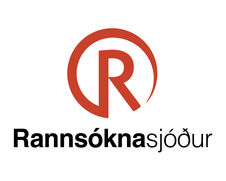Biobehavioural Analysis of Adolescent Reactivity to Stress - Streita í lífi unglinga - verkefni lokið
Fréttatilkynning verkefnisstjóra
Adolescence, the “transition” period from childhood to adulthood, is typified by psychosocial stress associated with changing life roles. Increasingly, evidence indicates that adolescence can involve significant and prolonged stress that is potentially harmful to physical health and psychological well-being.
Heiti verkefnis: Streita í lífi unglinga
Verkefnisstjóri: Jack James, Háskólanum í Reykjavík
Tegund styrks: Verkefnisstyrkur
Styrkár: 2011-2013
Fjárhæð styrks: 19,98 millj. kr. alls
Tilvísunarnúmer Rannís: 110608

Accordingly, this project examined reactivity to key “stressors” (i.e., pharmacological, cognitive, social, and emotional) that characterise adolescent life. Considering recent increases in adolescent caffeine consumption, caffeine was chosen as a priority for investigation. We found that caffeine consumption among adolescents is strongly related to increased consumption of alcohol mixed with energy drinks and that combined alcohol-caffeine consumption was strongly associated with drunkenness. More generally, caffeine is associated with violent behaviour and conduct disorders in children and adolescents, with the association being significantly stronger for girls than boys. Additionally, increased consumption of caffeinated sugar-sweetened beverages is associated with higher incidence of common physical complaints, including headaches, stomach ache, sleeping problems, and reduced appetite, and it appears that daytime sleepiness associated with caffeine use is a mediator of poorer academic achievement. Furthermore, compared to peers who consume little or no caffeine, children and adolescents who regularly consume caffeine (even modest average amounts) were found to have increased blood pressure levels while at rest and during exposure to psychosocial stress.


